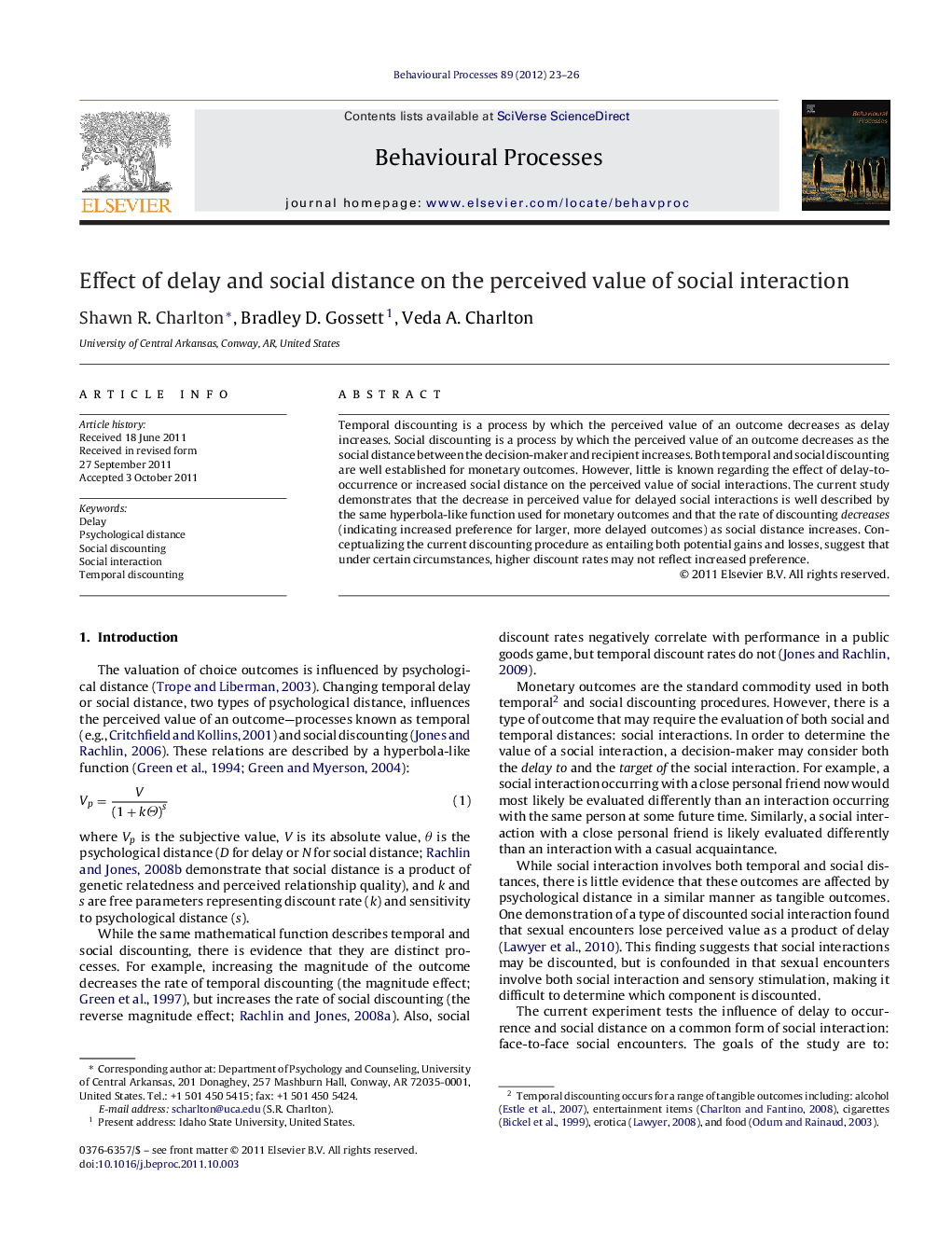| Article ID | Journal | Published Year | Pages | File Type |
|---|---|---|---|---|
| 2427241 | Behavioural Processes | 2012 | 4 Pages |
Temporal discounting is a process by which the perceived value of an outcome decreases as delay increases. Social discounting is a process by which the perceived value of an outcome decreases as the social distance between the decision-maker and recipient increases. Both temporal and social discounting are well established for monetary outcomes. However, little is known regarding the effect of delay-to-occurrence or increased social distance on the perceived value of social interactions. The current study demonstrates that the decrease in perceived value for delayed social interactions is well described by the same hyperbola-like function used for monetary outcomes and that the rate of discounting decreases (indicating increased preference for larger, more delayed outcomes) as social distance increases. Conceptualizing the current discounting procedure as entailing both potential gains and losses, suggest that under certain circumstances, higher discount rates may not reflect increased preference.
► Temporal discounting refers to the loss in value associated with delayed outcomes. ► Discounting has not previously been shown for delayed social interactions. ► Results indicate that delayed social interactions are subject to temporal discounting. ► Discounting of social interactions was shown at four social distances. ► As social distance increased, the rate of discounting decreased.
